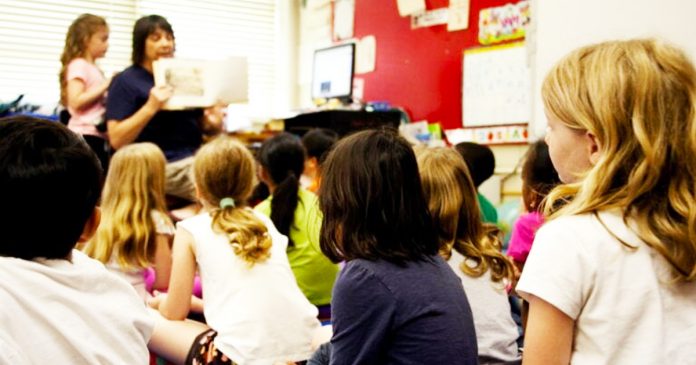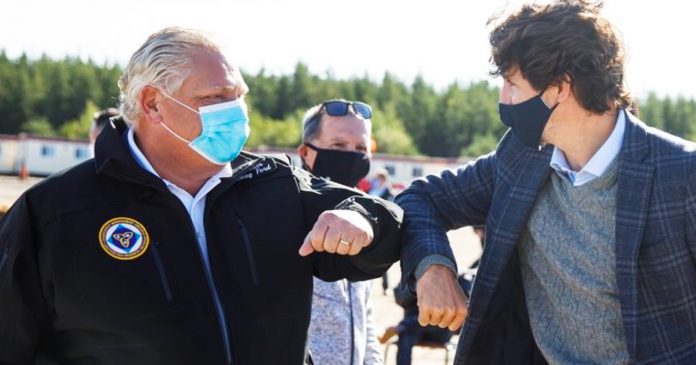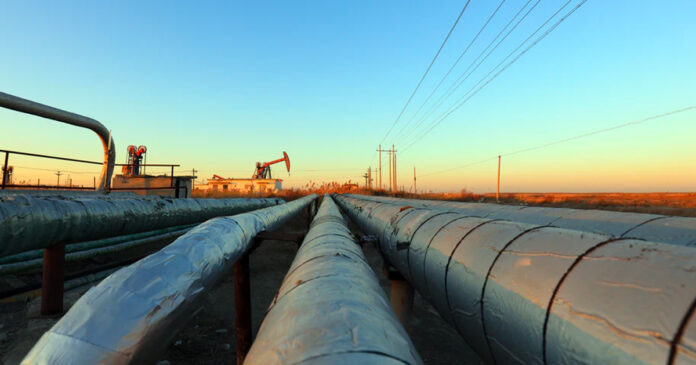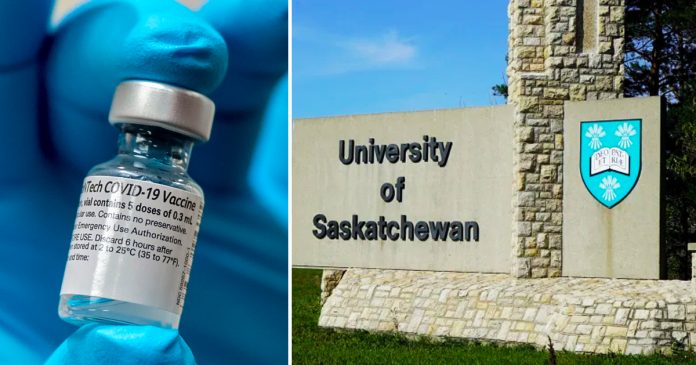Parents in the Peel school district of Ontario are being told their children ages twelve and up must be fully vaccinated against COVID-19 in order to play sports against other schools.
This is according to a letter sent to True North by a concerned parent.
The parent, whose child attends Cawthra Park Secondary School in Mississauga, told True North that she’s worried about the potential side effects of the COVID-19 vaccine, particularly among youth.
“I am concerned about the division that this type of mandate will create between the vaxxed and unvaxed students. I fear that it has become a tool of coercion by the board for students to play sports. This concerns me because of the high rate of myocarditis/pericarditis especially with young adolescent boys.”
“The school is asking adolescents to choose between playing sports they love and taking an experimental medication with serious side effect risks including death. If you also read the letter (from the school) carefully there is no option for exemption for religious/creed reasons which deeply concerns me as well for those who morally chose not to inject themselves with this gene therapy.”
According to the school’s letter, which appears to have been written by Cawthra Park principal Tyler McLeod, they are mandating the vaccine to “reduce the potential spread of COVID-19.”
“(A)s per the recommendation of Peel Public Health, effective immediately secondary school students 12 years of age and over, coaches and volunteers will be required to be fully vaccinated against COVID-19 to participate in any inter-school outdoor high contact sports as defined by the Region of Peel Secondary School Athletic Association (ROPSSAA) and all inter-school indoor sports/activities.”
The Peel District School Board (PDSB) has confirmed the policy to True North.
PDSB communications manager Malon Edwards replied with a statement that letters had been sent out by secondary school principals and that the policy was based on a recommendation by Peel Public Health.
“On November 19th, 2021, in order to reduce the potential spread of COVID-19, Peel Public Health issued a recommendation that school boards require students 12 years of age and over, coaches and volunteers, to be fully vaccinated against COVID-19 to participate in extra-curricular outdoor high contact sports and all extra-curricular indoor sports and recreational fitness activities.”
“This protocol will take place immediately.”
A school board employee speaking on condition of anonymity told True North that staff were not told about the new policy or that a letter was being sent out to parents.
On September 16, the PDSB rejected a mandatory workplace vaccination policy, calling the decision to get vaccinated “personal and voluntary.”
According to government statistics, only 8 of the 29,530 deaths in Canada due to COVID have occurred in the 12-19 age group – less than 0.0003%.
The age group also accounted for less than 1% of total hospitalizations.


























